Rosie G. Albarran-Zeckler
The Scripps Research Institute (FL)
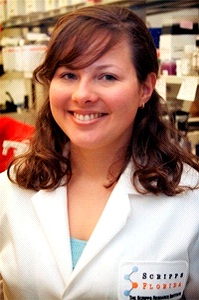 Rosie
was born and raised in Puerto Rico. After graduating from University of
Puerto Rico in Río Piedras with a BS in Biology, she pursued graduate
studies at Baylor College of Medicine where she studied the regulation
of dopamine receptor type-1 (D1R) signaling by the hormone ghrelin and
its receptor (GHS-R1a). She recently defended her thesis project and
earned a Ph.D. in Molecular and Cellular Biology from BCM. She is now a
postdoctoral fellow at The Scripps Research Institute in Florida. At
Scripps, she has been investigating the modulation of D1R-regulated
behaviors such as motivation, attention, and learning by the GHS-R1a in
mice. Additionally, Rosie is actively involved in education outreach
initiatives and the professional development of fellow students and
postdocs, and this led her to her become an Education Outreach Associate
in the Department of Education Outreach at Scripps Florida. In this new
position, her goal is to help middle and high school students,
especially from underrepresented groups, get excited about science and
math; she hopes that more students will excel at science and pursue
scientific careers. Rosie
was born and raised in Puerto Rico. After graduating from University of
Puerto Rico in Río Piedras with a BS in Biology, she pursued graduate
studies at Baylor College of Medicine where she studied the regulation
of dopamine receptor type-1 (D1R) signaling by the hormone ghrelin and
its receptor (GHS-R1a). She recently defended her thesis project and
earned a Ph.D. in Molecular and Cellular Biology from BCM. She is now a
postdoctoral fellow at The Scripps Research Institute in Florida. At
Scripps, she has been investigating the modulation of D1R-regulated
behaviors such as motivation, attention, and learning by the GHS-R1a in
mice. Additionally, Rosie is actively involved in education outreach
initiatives and the professional development of fellow students and
postdocs, and this led her to her become an Education Outreach Associate
in the Department of Education Outreach at Scripps Florida. In this new
position, her goal is to help middle and high school students,
especially from underrepresented groups, get excited about science and
math; she hopes that more students will excel at science and pursue
scientific careers.
|
| |
Molly K. Altman
University of Georgia
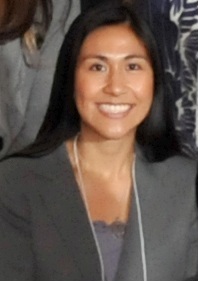 Molly
is currently a graduate student in Pharmaceutical and Biomedical
Sciences at the University of Georgia. Her dissertation research seeks
to further understand and characterize specific proteins involved in the
signaling mechanisms that lead to chemoresistance in ovarian cancer.
She received her bachelor’s degree in Psychology with a focus in
Neuroscience from the University of Florida. Molly is a native of
Jacksonville, Florida, where her family was stationed in the Navy. Molly
is interested in how local communities of scientists can influence
public policy in Washington, DC. She feels her role as an ASPET
Washington Fellow helps to extend her commitment to the advancement of
biomedical research. Molly
is currently a graduate student in Pharmaceutical and Biomedical
Sciences at the University of Georgia. Her dissertation research seeks
to further understand and characterize specific proteins involved in the
signaling mechanisms that lead to chemoresistance in ovarian cancer.
She received her bachelor’s degree in Psychology with a focus in
Neuroscience from the University of Florida. Molly is a native of
Jacksonville, Florida, where her family was stationed in the Navy. Molly
is interested in how local communities of scientists can influence
public policy in Washington, DC. She feels her role as an ASPET
Washington Fellow helps to extend her commitment to the advancement of
biomedical research.
|
| |
Catherine M. Davis
Johns Hopkins University School of Medicine
 Catherine
is a National Space Biomedical Research Fellow at Johns Hopkins
University School of Medicine in Baltimore, MD. Her current research
focuses on determining the behavioral, neurochemical, and physiological
differences that impact an individual’s sensitivity to cognitive
neurobehavioral deficits following exposure to ionizing radiation or the
administration of various drugs of abuse. She received her M.A.and
Ph.D. from the Behavior, Cognition, and Neuroscience program at American
University in Washington, DC. She is a 2004 graduate of Washington
& Jefferson College, located in Washington, PA, where she majored in
Psychology, with a concentration in Neuroscience. Catherine was born
and raised in Charleroi, PA and currently lives in Rockville, MD. She
hopes the ASPET Washington Fellows program will enable her to
successfully engage her colleagues in discussions of science policy
issues and to help establish a larger network of scientists,
researchers, and educators who are aware of the policy issues facing
biomedical research and education. Catherine
is a National Space Biomedical Research Fellow at Johns Hopkins
University School of Medicine in Baltimore, MD. Her current research
focuses on determining the behavioral, neurochemical, and physiological
differences that impact an individual’s sensitivity to cognitive
neurobehavioral deficits following exposure to ionizing radiation or the
administration of various drugs of abuse. She received her M.A.and
Ph.D. from the Behavior, Cognition, and Neuroscience program at American
University in Washington, DC. She is a 2004 graduate of Washington
& Jefferson College, located in Washington, PA, where she majored in
Psychology, with a concentration in Neuroscience. Catherine was born
and raised in Charleroi, PA and currently lives in Rockville, MD. She
hopes the ASPET Washington Fellows program will enable her to
successfully engage her colleagues in discussions of science policy
issues and to help establish a larger network of scientists,
researchers, and educators who are aware of the policy issues facing
biomedical research and education.
|
| |
Summer Leigh Dodson
Oklahoma State University
 A
native of Tulsa, Summer attended the National Young Leaders Conference
in Washington, DC in high school, where she received training in the
political process and participated in mock political situations such as
international hostage negotiations. At Tulsa University, her research
interests in natural products was born where she successfully isolated
and identified opioid active components of Monarda citreodora and
verified their activity in tissue homogenates. After a seven year break
from school while working as an Engineering Technician and then a
Process Engineer in manufacturing, Summer entered Oklahoma State
University – Center for Health Sciences, to pursue a dream of a Ph.D. in
Biomedical Sciences where she is continuing her opioid research
focusing on the effects of methadone on neuroinflammatory signaling.
Summer believes that in order to help bridge the gap of understanding
between the necessary research tools and monies and the policies that
govern science, it is imperative to have a great understanding of both. A
native of Tulsa, Summer attended the National Young Leaders Conference
in Washington, DC in high school, where she received training in the
political process and participated in mock political situations such as
international hostage negotiations. At Tulsa University, her research
interests in natural products was born where she successfully isolated
and identified opioid active components of Monarda citreodora and
verified their activity in tissue homogenates. After a seven year break
from school while working as an Engineering Technician and then a
Process Engineer in manufacturing, Summer entered Oklahoma State
University – Center for Health Sciences, to pursue a dream of a Ph.D. in
Biomedical Sciences where she is continuing her opioid research
focusing on the effects of methadone on neuroinflammatory signaling.
Summer believes that in order to help bridge the gap of understanding
between the necessary research tools and monies and the policies that
govern science, it is imperative to have a great understanding of both.
|
| |
Robert W. Gould
Vanderbilt University Medical Center
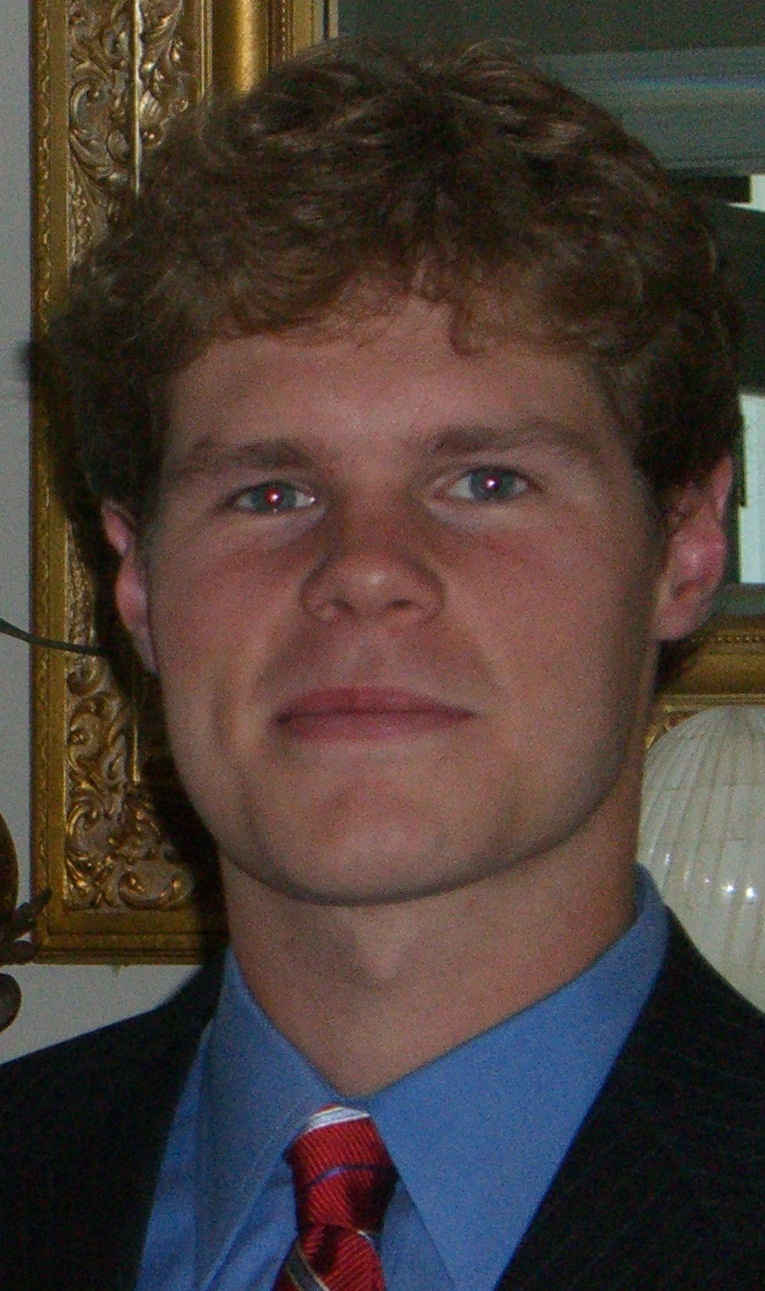 Robert
is a postdoctoral fellow at the Vanderbilt Center for Neuroscience Drug
Discovery at the Vanderbilt University Medical Center. His research
goals include developing drugs that improve the cognitive deficits
associated with neuropsychiatric and degenerative disorders and
improving the translatability of preclinical models to clinical
settings. Robert received his Ph.D. in Physiology and Pharmacology at
Wake Forest University of Health Sciences where his studies focused on
characterizing the detrimental effects of cocaine on the brain and its
effects on cognition, and attempting to improve cognitive function via
novel drugs targeting the nicotinic acetylcholine receptor system as an
adjunct therapy for treating cocaine addiction. Robert’s interest in
advocating on behalf of scientific research at both the local community
and national levels stems his belief that a strong dialogue between
researchers, the public, and elected representatives is integral for
improving quality of life. Robert is a past participant in ASPET’s 2011
Capitol Hill Day during the ASPET Annual Meeting at Experimental
Biology. Robert
is a postdoctoral fellow at the Vanderbilt Center for Neuroscience Drug
Discovery at the Vanderbilt University Medical Center. His research
goals include developing drugs that improve the cognitive deficits
associated with neuropsychiatric and degenerative disorders and
improving the translatability of preclinical models to clinical
settings. Robert received his Ph.D. in Physiology and Pharmacology at
Wake Forest University of Health Sciences where his studies focused on
characterizing the detrimental effects of cocaine on the brain and its
effects on cognition, and attempting to improve cognitive function via
novel drugs targeting the nicotinic acetylcholine receptor system as an
adjunct therapy for treating cocaine addiction. Robert’s interest in
advocating on behalf of scientific research at both the local community
and national levels stems his belief that a strong dialogue between
researchers, the public, and elected representatives is integral for
improving quality of life. Robert is a past participant in ASPET’s 2011
Capitol Hill Day during the ASPET Annual Meeting at Experimental
Biology.
|
| |
Kristoff T. Homan
University of Michigan
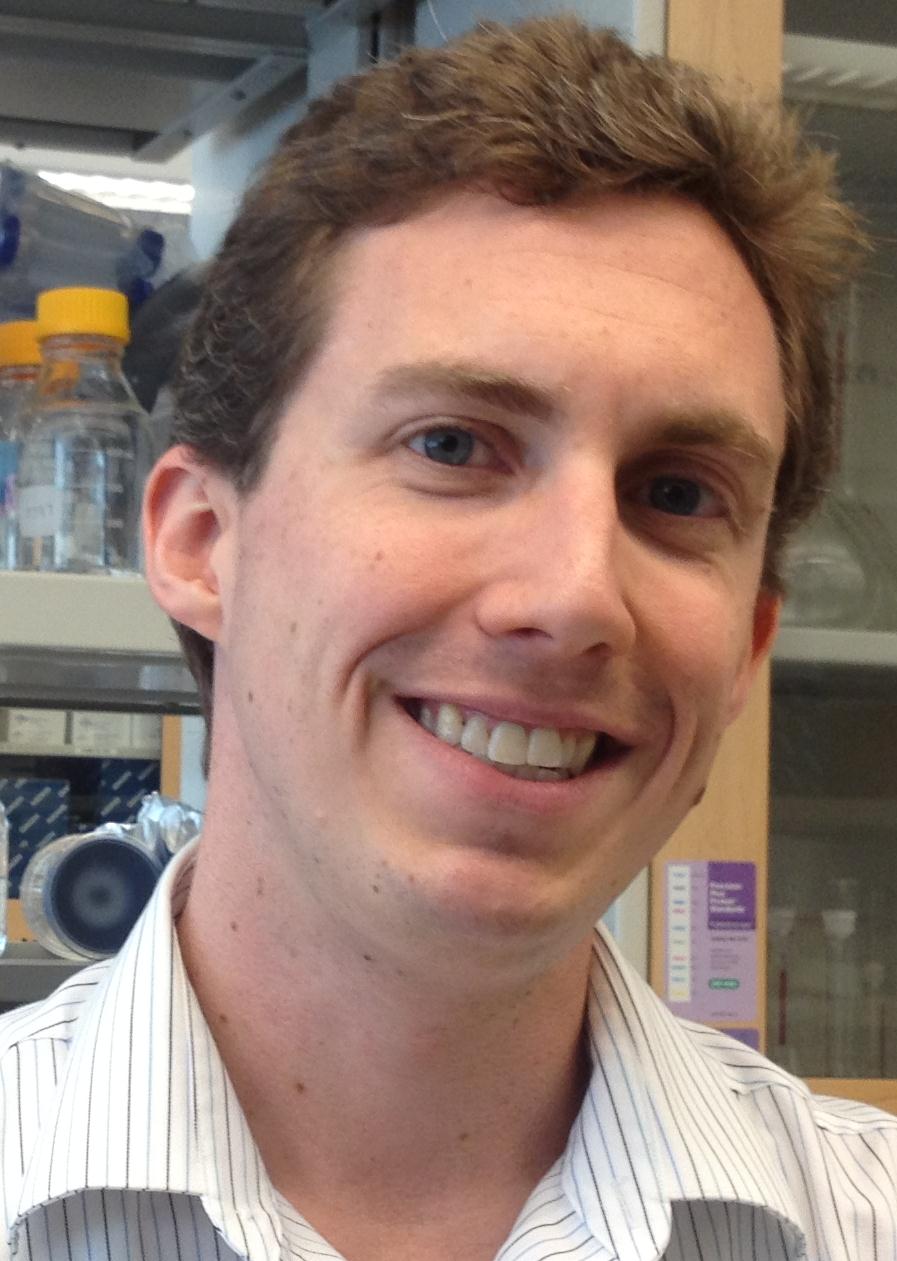 Born
in Crown Point, Indiana, Kristoff grew up in Indiana and Illinois and
graduated from the University of Chicago Laboratory High School. He
subsequently studied physics and mathematics at the University of
Illinois as an undergraduate. Kristoff then attended Purdue University
for graduate work in structural biology, where he focused on the
identification of small molecule inhibitors for a low molecular weight
protein tyrosine phosphatase in order to develop new treatments for
metastatic transformation. After graduation 2010, his post-doctoral work
at the University of Michigan involved G protein signaling networks,
specifically the interactions between G protein-coupled receptors and G
protein-coupled receptor kinases (GRKs). He has been studying the
structural basis of these interactions as well as translational research
oriented at small molecule inhibitor discovery, characterization, and
optimization for the GRKs. Born
in Crown Point, Indiana, Kristoff grew up in Indiana and Illinois and
graduated from the University of Chicago Laboratory High School. He
subsequently studied physics and mathematics at the University of
Illinois as an undergraduate. Kristoff then attended Purdue University
for graduate work in structural biology, where he focused on the
identification of small molecule inhibitors for a low molecular weight
protein tyrosine phosphatase in order to develop new treatments for
metastatic transformation. After graduation 2010, his post-doctoral work
at the University of Michigan involved G protein signaling networks,
specifically the interactions between G protein-coupled receptors and G
protein-coupled receptor kinases (GRKs). He has been studying the
structural basis of these interactions as well as translational research
oriented at small molecule inhibitor discovery, characterization, and
optimization for the GRKs.
|
| |
Adam J. Kuszak
National Institute of Diabetes & Digestive and Kidney Diseases
 Adam
is an NIH Postdoctoral Fellow. His research interests focus on the
structure and function of membrane proteins and his postdoctoral work
investigates macromolecular complexes in bacteria and mitochondria that
import proteins and insert them into the plasma membrane. Since 2010, he
has become increasingly involved in science policy and advocacy, driven
by a desire to educate the general public about the ever increasing
scientific understanding of our world and to utilize that understanding
to advance the health and prosperity of our society. He has worked
extensively with the NIH Fellows Science Policy and Discussion Group and
served as its co-chair. Adam was born in Detroit and raised in the
Chicago suburb of Oak Park, Illinois. He received his B.S. in
Pharmacology and Toxicology from the University of Wisconsin-Madison,
and earned his Ph.D. in Pharmacology from the University of Michigan
Medical School. Adam
is an NIH Postdoctoral Fellow. His research interests focus on the
structure and function of membrane proteins and his postdoctoral work
investigates macromolecular complexes in bacteria and mitochondria that
import proteins and insert them into the plasma membrane. Since 2010, he
has become increasingly involved in science policy and advocacy, driven
by a desire to educate the general public about the ever increasing
scientific understanding of our world and to utilize that understanding
to advance the health and prosperity of our society. He has worked
extensively with the NIH Fellows Science Policy and Discussion Group and
served as its co-chair. Adam was born in Detroit and raised in the
Chicago suburb of Oak Park, Illinois. He received his B.S. in
Pharmacology and Toxicology from the University of Wisconsin-Madison,
and earned his Ph.D. in Pharmacology from the University of Michigan
Medical School.
|
| |
Gloria E. Malpass
Wake Forest University Health Sciences
 Gloria
graduated from the University of North Carolina at Wilmington with a BS
in Mathematics. She has worked in the quality control division at GE
Aircraft Engines in Wilmington, NC and Lynn, MA. An interest in pursuing
a career in the pharmaceutical industry led her to the doctoral program
in the Department of Pharmacology and Toxicology at the Brody School of
Medicine at East Carolina University. Since receiving her Ph.D., she
has been a postdoctoral research fellow in the Department of Physiology
and Pharmacology at Wake Forest University Health Sciences. Her current
research is focused on identifying biomarkers in human dermal
fibroblasts that may be impacted by tobacco products and is supported by
a RJR-Leon Goldberg Fellowship. Gloria hopes to educate others on the
importance of biomedical research, and to advocate for science policy
based on sound scientific arguments. Gloria
graduated from the University of North Carolina at Wilmington with a BS
in Mathematics. She has worked in the quality control division at GE
Aircraft Engines in Wilmington, NC and Lynn, MA. An interest in pursuing
a career in the pharmaceutical industry led her to the doctoral program
in the Department of Pharmacology and Toxicology at the Brody School of
Medicine at East Carolina University. Since receiving her Ph.D., she
has been a postdoctoral research fellow in the Department of Physiology
and Pharmacology at Wake Forest University Health Sciences. Her current
research is focused on identifying biomarkers in human dermal
fibroblasts that may be impacted by tobacco products and is supported by
a RJR-Leon Goldberg Fellowship. Gloria hopes to educate others on the
importance of biomedical research, and to advocate for science policy
based on sound scientific arguments.
|
| |
Melissa Branham O’Connor
Medical University of South Carolina
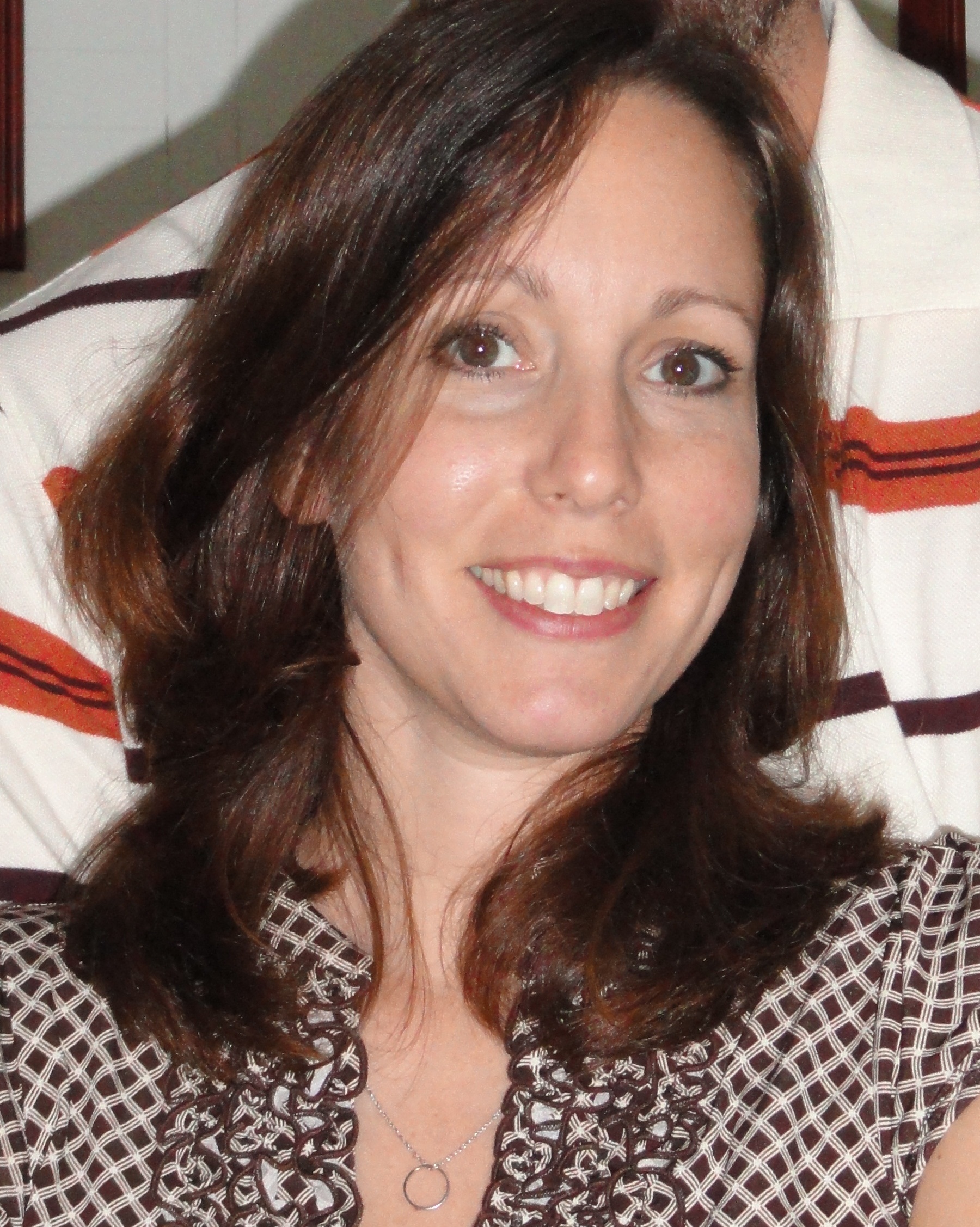 Although
born in Jamestown, NY, Melissa’s family moved all over the east coast
before settling in Charleston, SC. She received a dual bachelor’s degree
in chemistry and biochemistry from the College of Charleston and a
Ph.D. in microbiology and molecular medicine from Clemson University.
Melissa pursued a postdoctoral career at the Medical University of South
Carolina where she investigates modulators of G protein signaling in
immune cells. She also serves as an adjunct instructor both at The
College of Charleston and at The Citadel and is actively involved in the
Lowcountry STEM initiative to improve the competitiveness of South
Carolina education. Melissa is eagerly anticipating working as an ASPET
Washington Fellow in order to raise awareness for science policy and
funding. Although
born in Jamestown, NY, Melissa’s family moved all over the east coast
before settling in Charleston, SC. She received a dual bachelor’s degree
in chemistry and biochemistry from the College of Charleston and a
Ph.D. in microbiology and molecular medicine from Clemson University.
Melissa pursued a postdoctoral career at the Medical University of South
Carolina where she investigates modulators of G protein signaling in
immune cells. She also serves as an adjunct instructor both at The
College of Charleston and at The Citadel and is actively involved in the
Lowcountry STEM initiative to improve the competitiveness of South
Carolina education. Melissa is eagerly anticipating working as an ASPET
Washington Fellow in order to raise awareness for science policy and
funding.
|
| |
Alison Presley
American University
 Alison
was born and raised in Albany, Georgia and attended the University of
Georgia. As a psychology major, she was exposed to a variety of topics
and didn’t decide on drug abuse research until her senior year. After
school, she took a year to work as a government affairs intern at a
research related trade association. Following the internship, Alison was
accepted into American University’s Behavior, Cognition and
Neuroscience program in Washington, DC. Her primary interests focus on
the aversive effects of drugs of abuse and the mechanisms by which they
act. She is currently a second year graduate student. Alison feels that
the ASPET Washington Fellows Program will provide a great opportunity to
bridge the gap between the work of scientists and our lawmakers. As a
young scientist, she hopes to bridge this gap and communicate with
lawmakers on behalf of researchers. Alison
was born and raised in Albany, Georgia and attended the University of
Georgia. As a psychology major, she was exposed to a variety of topics
and didn’t decide on drug abuse research until her senior year. After
school, she took a year to work as a government affairs intern at a
research related trade association. Following the internship, Alison was
accepted into American University’s Behavior, Cognition and
Neuroscience program in Washington, DC. Her primary interests focus on
the aversive effects of drugs of abuse and the mechanisms by which they
act. She is currently a second year graduate student. Alison feels that
the ASPET Washington Fellows Program will provide a great opportunity to
bridge the gap between the work of scientists and our lawmakers. As a
young scientist, she hopes to bridge this gap and communicate with
lawmakers on behalf of researchers.
|
| |
Matthew Robson
West Virginia University
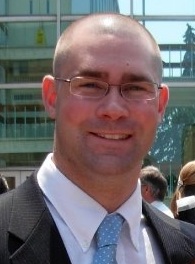 A
native of Waterloo, NY, Matthew completed his undergraduate coursework
and received a B.S. in biochemistry from Canisius College. While at
Canisius College, he conducted research in the neuropharmacology
research division at the DENT neurologic institute. His primary research
interest while there focused upon health outcomes in secondary stroke
patients in regards to their responsiveness to antiplatelet medication
regimens. Matthew became a graduate student at West Virginia University
in 2008 and will be completing his Ph.D. in Pharmaceutical and
Pharmacological Sciences in the spring of 2013. While at West Virginia
University, his primary research focus has been the therapeutic
potential of sigma receptor ligands for the treatment of
neuropsychiatric conditions, specifically in the areas of depression and
drug abuse. He has accepted a postdoctoral position at Vanderbilt
University to examine the role of serotonin transporters and
serotonin-related signaling in several neurologic disorders. Matthew
believes science advocacy is an important skill needed by members of the
scientific community and that scientists with a passion for both
research and public policy are able to effectively portray the
importance of federal funding for biomedical research and why it is a
good investment for the American taxpayer. A
native of Waterloo, NY, Matthew completed his undergraduate coursework
and received a B.S. in biochemistry from Canisius College. While at
Canisius College, he conducted research in the neuropharmacology
research division at the DENT neurologic institute. His primary research
interest while there focused upon health outcomes in secondary stroke
patients in regards to their responsiveness to antiplatelet medication
regimens. Matthew became a graduate student at West Virginia University
in 2008 and will be completing his Ph.D. in Pharmaceutical and
Pharmacological Sciences in the spring of 2013. While at West Virginia
University, his primary research focus has been the therapeutic
potential of sigma receptor ligands for the treatment of
neuropsychiatric conditions, specifically in the areas of depression and
drug abuse. He has accepted a postdoctoral position at Vanderbilt
University to examine the role of serotonin transporters and
serotonin-related signaling in several neurologic disorders. Matthew
believes science advocacy is an important skill needed by members of the
scientific community and that scientists with a passion for both
research and public policy are able to effectively portray the
importance of federal funding for biomedical research and why it is a
good investment for the American taxpayer.
|
| |
Abigail G. Schindler
University of Washington
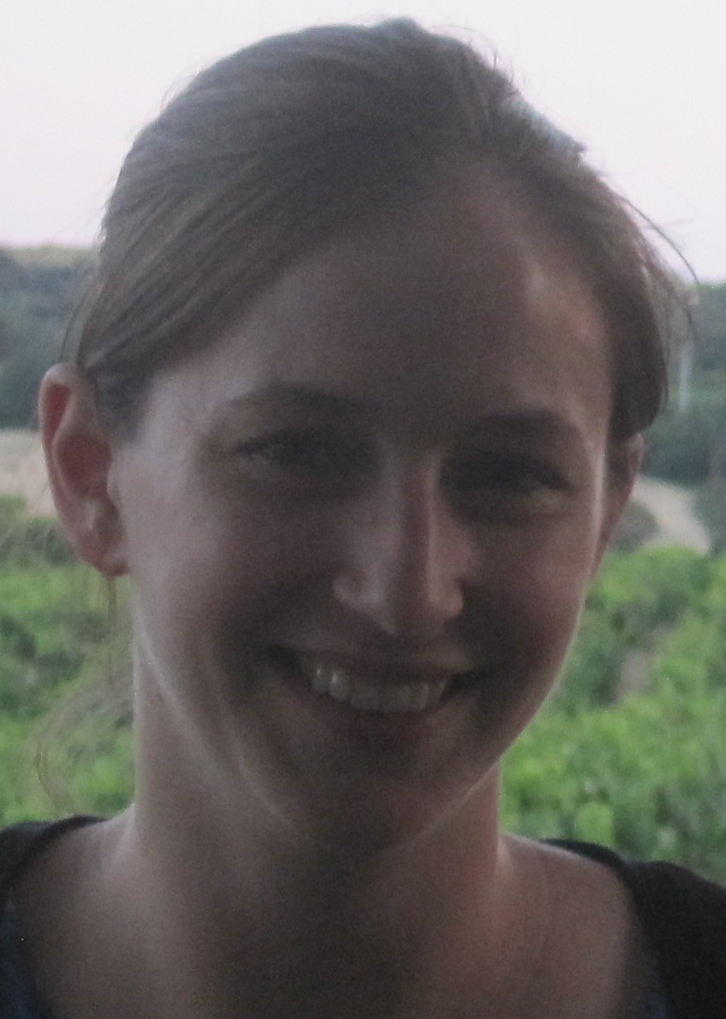 Abigail
is a senior fellow in the Department of Psychiatry and Behavioral
Sciences at the University of Washington. She grew up in Santa Cruz, CA
and attended the University of Texas at Austin where she received a full
ride volleyball scholarship. After graduating with a B.S. in Psychology
and minor in Biology she worked as a research technician with the
Christopher and Dana Reeve Foundation at University of California
Irvine. Abigail was awarded her Ph.D. from the Department of
Pharmacology at the University of Washington in 2012. Her dissertation
work focused on understanding the mechanisms underlying stress-induced
increase in drug reward. Her current postdoctoral research involves
determining the behavioral and molecular mechanisms leading to increased
risk taking behavior in adulthood following adolescent alcohol intake.
She is the co-leader of Seattle's Forum on Science Ethics and Policy,
helps organize the Science Policy Summit at University of Washington,
and writes a science policy and research blog. Additionally, Abigail has
previously traveled to Washington, DC to advocate for increased science
funding and believes a strong federal research program is essential to
economic prosperity and the future success of the country. Abigail
is a senior fellow in the Department of Psychiatry and Behavioral
Sciences at the University of Washington. She grew up in Santa Cruz, CA
and attended the University of Texas at Austin where she received a full
ride volleyball scholarship. After graduating with a B.S. in Psychology
and minor in Biology she worked as a research technician with the
Christopher and Dana Reeve Foundation at University of California
Irvine. Abigail was awarded her Ph.D. from the Department of
Pharmacology at the University of Washington in 2012. Her dissertation
work focused on understanding the mechanisms underlying stress-induced
increase in drug reward. Her current postdoctoral research involves
determining the behavioral and molecular mechanisms leading to increased
risk taking behavior in adulthood following adolescent alcohol intake.
She is the co-leader of Seattle's Forum on Science Ethics and Policy,
helps organize the Science Policy Summit at University of Washington,
and writes a science policy and research blog. Additionally, Abigail has
previously traveled to Washington, DC to advocate for increased science
funding and believes a strong federal research program is essential to
economic prosperity and the future success of the country.
|
| |
Tricia H. Smith
Virginia Commonwealth University
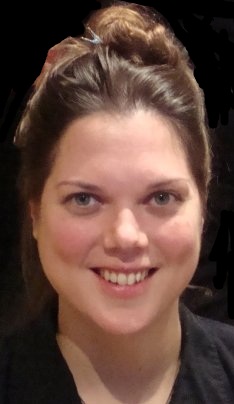 Tricia
was raised in Sarasota, FL and began her science career at the
University of Florida, obtaining a Bachelor of Science in zoology. She
received a Masters in Pharmacology from the Tulane University School of
Medicine and in 2009 completed her Ph.D. in Pharmacology at VCU. Her
primary research interests include drugs of abuse; particularly
cannabinoids and opioids, similar to marijuana and morphine,
respectively. Her specialties include electrophysiology and g-protein
coupled receptor (GPCR) function. Currently, Tricia studies the effects
of morphine in the gastrointestinal system as a postdoctoral research
fellow at VCU. Tricia believes that scientific involvement in government
is crucial to our national prosperity and that governmental policy
should be shaped by sound scientific research. Tricia
was raised in Sarasota, FL and began her science career at the
University of Florida, obtaining a Bachelor of Science in zoology. She
received a Masters in Pharmacology from the Tulane University School of
Medicine and in 2009 completed her Ph.D. in Pharmacology at VCU. Her
primary research interests include drugs of abuse; particularly
cannabinoids and opioids, similar to marijuana and morphine,
respectively. Her specialties include electrophysiology and g-protein
coupled receptor (GPCR) function. Currently, Tricia studies the effects
of morphine in the gastrointestinal system as a postdoctoral research
fellow at VCU. Tricia believes that scientific involvement in government
is crucial to our national prosperity and that governmental policy
should be shaped by sound scientific research.
|
| |
| Information and Application Guidelines for the 2014 ASPET Washington Fellows Program can be found at http://www.aspet.org/advocacy/grassroots/2014-washington-fellows-program/. |